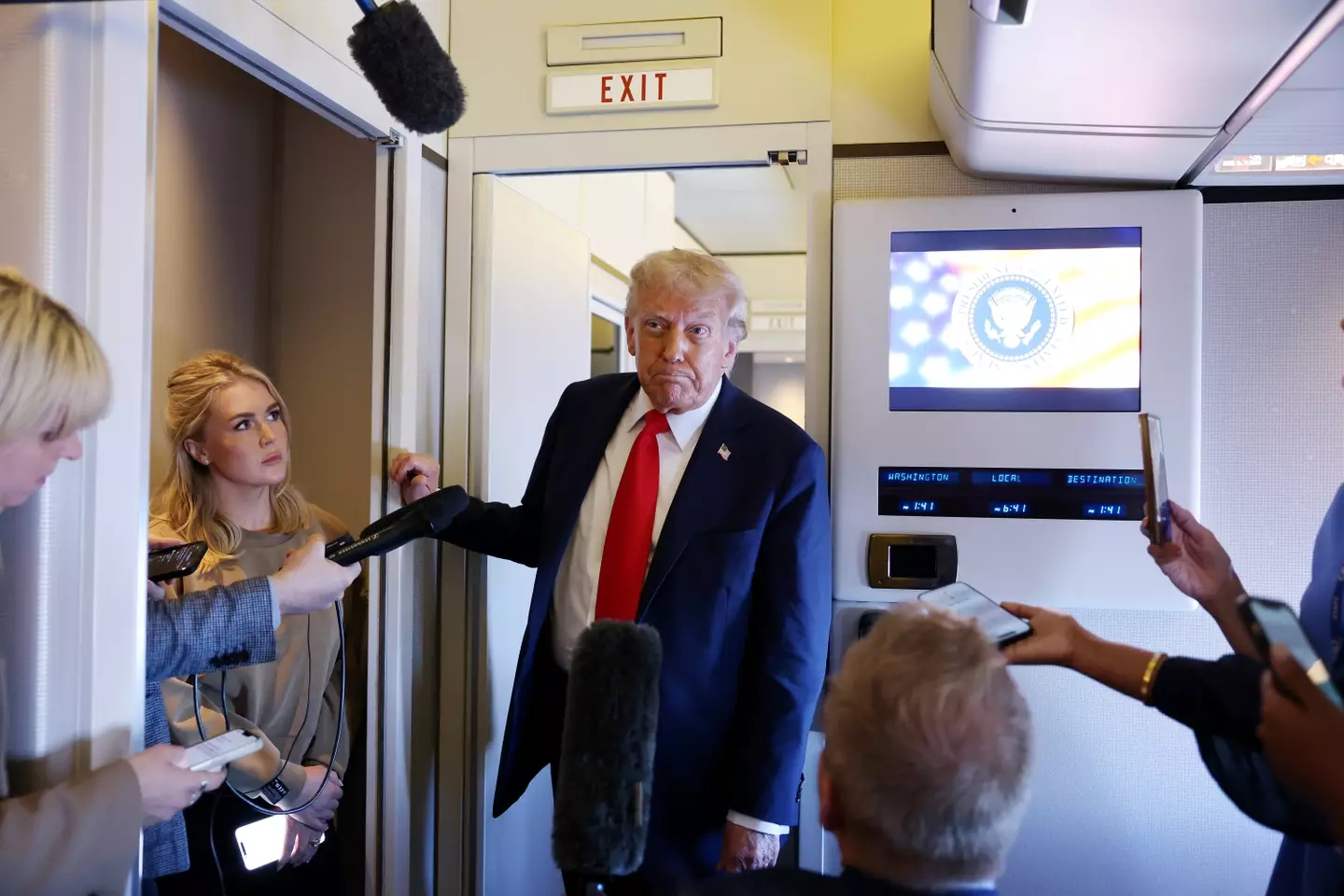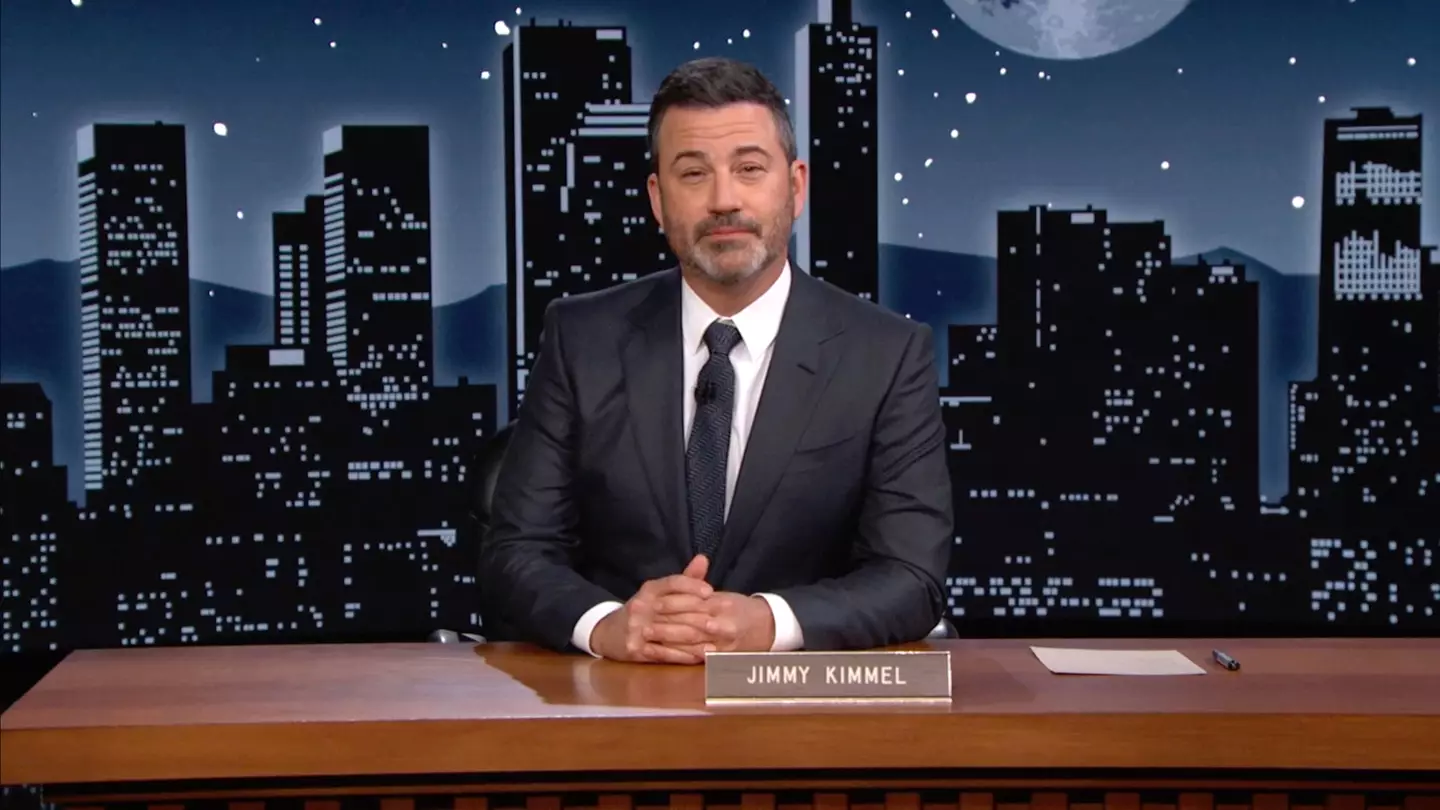When Ilhan Omar challenged Barron Trump to an IQ test during a live television panel, most viewers expected the exchange to become another heated ideological argument between political camps. Omar delivered the challenge with her characteristic confidence, clearly assuming she was taking control of the moment. What she did not anticipate was that the situation would flip almost immediately, and the very challenge she issued would become the pivot point in one of the most replayed clips of the year. The entire confrontation lasted less than a minute, but those 31 seconds were enough to silence a room, freeze a panel, and create a viral moment that reshaped public perception of both figures.
The panel began like many others: multiple commentators, a host attempting to steer the discussion, and a segment on political messaging and rhetorical escalation. Omar had been passionately arguing her position on educational inequality and political literacy, making the case that certain public figures should be held to higher intellectual scrutiny. Her tone was self-assured, and her arguments flowed smoothly until she aimed a direct provocation at Barron Trump. She leaned forward, smiled in a way that felt both playful and condescending, and asked, “Would you be willing to take an IQ test right here, right now? Because I think we all know how that would turn out.”
The studio audience reacted with a mix of laughter and surprise. Even the host raised his eyebrows, recognizing that the challenge was more personal than substantive. Omar seemed certain she had gained the upper hand—or at least created a memorable soundbite. Barron Trump, who had said relatively little up to that point, remained quiet for a moment. He didn’t flinch. He didn’t look flustered. He simply waited, letting the challenge hang in the air.
The silence itself shifted the energy. Viewers watching live later described the moment as “unnervingly calm” in a conversation that had been heated only seconds earlier. When Barron finally spoke, his tone was measured and controlled—not emotional, not defensive, but deliberate. And that tone immediately changed the trajectory of the exchange.
His first sentence was unexpected: “If we’re measuring intelligence, let’s start by accurately quoting your own data from earlier.” That single line neatly reframed the conversation. Instead of engaging in a combative back-and-forth, Barron positioned himself as someone correcting an error rather than retaliating. He then pointed out a discrepancy in a statistic Omar had cited only minutes earlier, identifying the source she referenced and explaining how the number she gave didn’t match the original report. His explanation was precise, and most importantly, it was correct.

For a moment, Omar looked confused. She glanced down at her notes, flipping through them quickly. It was clear she had not expected him to remember the statistic, much less dissect it on air. The panelists who had been nodding along with her earlier statements suddenly shifted in their seats. They were no longer reacting to Omar but to the sudden role reversal unfolding in front of them.
Barron continued by calmly outlining how public debates often devolve into personal challenges and rhetorical stunts rather than genuine policy discussion. Then he added a remark that viewers immediately recognized as the linchpin of the moment: “If the goal is to test intelligence, then accuracy is the first requirement.” The statement was analytical rather than mocking, but it struck at the heart of Omar’s challenge. Without directly accepting or rejecting the IQ test proposal, he demonstrated that he had already passed a more immediate test—one of precision and composure.
Omar’s confidence cracked just enough for cameras to capture it. Her shoulders stiffened, and she responded with a brief attempt to redirect the conversation toward broader political issues. But the shift came too late. The panel, sensing the change, did not offer the same enthusiastic support it had shown earlier. The host attempted to maintain neutrality, but even his tone indicated that the exchange had taken an unexpected and uncomfortable turn for Omar.
What made the moment so striking was not aggression or hostility; it was the opposite. Barron never raised his voice, never mocked her, never took the bait. In a setting where political confrontations often escalate into shouting matches, his calm demeanor created a contrast that was almost more powerful than a direct confrontation would have been. It suggested control, preparation, and an understanding that debates are won through clarity rather than theatrics.

The decisive twist came right before the clip ended. After Omar attempted to recover by re-explaining her initial point, Barron added, “If we’re discussing who understands these issues best, maybe we should test how closely we listen before testing IQ.” The line wasn’t cruel. It wasn’t personal. It simply underscored the theme he had already established: accuracy over ego. That sentence, delivered with the same steady tone he had maintained throughout, effectively closed the discussion. Omar, for the first time in the segment, was silent.
The panel froze. The room went quiet in a way that felt involuntary. It wasn’t the orchestrated silence of a dramatic pause; it was the stunned silence of a group realizing that the balance of power had shifted. The clip cut to commercial, but by then, the internet had already seized on the moment.
Within minutes, social media exploded with reactions. Some viewers praised Barron for his restraint and clarity. Others criticized Omar for turning the discussion into a personal challenge that backfired. The dominant narrative, however, focused on the 31-second sequence in which a seemingly harmless provocation turned into a defining moment of the broadcast. Hashtags emerged almost instantly, memes appeared, and the clip circulated across platforms, generating millions of views within hours.
Political analysts weighed in as well. Some argued that the exchange demonstrated the risk of relying too heavily on rhetorical devices without grounding arguments in factual accuracy. Others pointed out that Barron’s demeanor contrasted sharply with typical political discourse, making his response more impactful. Regardless of perspective, most agreed that Omar had walked into the exchange expecting a victory and had instead given Barron an opportunity to demonstrate poise that surprised both supporters and critics.
In the days that followed, interviews and commentary dissected the encounter. Supporters of Omar insisted that the challenge had been taken out of context; supporters of Barron praised the moment as proof of maturity and discipline. Yet the public perception remained shaped by what viewers saw: a confident challenge followed by a calm rebuttal that left the challenger momentarily speechless.
The moment illustrates how quickly political narratives can shift and how easily confidence can collapse when confronted with unexpected precision. It also highlighted how much public communication depends on composure—not just knowledge, but the ability to respond thoughtfully under pressure.
In the end, the viral clip is not remembered because of the IQ test challenge itself. It is remembered because of the silence that followed, the shift in tone, and the recognition that the most powerful moment in a debate is sometimes the one delivered without raising a single decibel. The 31-second exchange between Ilhan Omar and Barron Trump became unforgettable not because it was loud, but because it proved that calm clarity can be more disruptive than confrontation.




.jpg)


.jpg)


.jpg)





.jpg)
.jpg)








